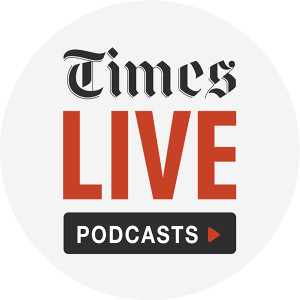
ALLAN GREENBLO: IMF loan could spark a seismic shift in SA’s politics
Loading player...
Whenever this ANC government announces an initiative, it’s quickly followed by incredulity. Not without good reason: it’s a scepticism provoked by long experience of promises designed to deceive, or policies destined to fail.
Why should this time of Covid-19 be any different?
Well, there is potentially one reason: SA’s choices are confined by the anticipation of bankruptcy. As happened previously in SA, when the fiscus was blown, economic sovereignty and political fantasy become subservient to the bond markets.
That was in 1989, when the sanctions-induced deprivation of foreign exchange significantly tipped the SA government of FW de Klerk to commence the abandonment of apartheid. The right-wingers in the ruling National Party were defied.
Today, more than three decades later, rating downgrades to junk status caused by a decade of endemic corruption has created an urgency to attract foreign exchange, forcing Cyril Ramaphosa’s government to contract with the market-orientated International Monetary Fund (IMF). Left-wingers in the ruling party, of statist inclination, had better be defied.
If they aren’t, Ramaphosa will stagger and stumble under the weight of demands, and the populist consequences will become eerily predictable: raids on peoples savings, tax increases that stimulate capital flight, exacerbated rand weakness and overworked Reserve Bank printing presses....
In the same way that February 1989 sparked an ideological shift of seismic reverberation, so too can the IMF sign-up in July 2020 do much the same to time-worn clichés that masquerade as weapons to attack poverty, unemployment and inequality.
SA’s economy still has positives — not least of which is finance minister Tito Mboweni and Reserve Bank governor Lesetja Kganyago, respectively representing National Treasury and the independent central bank.
Both are curators of orthodox fiscal and monetary policies, informed by prudence, not grandstanding. Their sobriety is consistent with the IMF principles of marketplace deregulation and competition — even if this is the precise antithesis of central command that continues to find favour in the ruling party.
That much is illustrated by the power-drunk dictates of the national coronavirus command council. Its contradictory extremes are hostile to business, with which government says it wants a social compact. The council’s rules have also served to diminish the tax base on which government relies, frighten the capital investment which government urges, and obliterating jobs capable of retention.
Let’s be clear: the $4.3bn IMF loan, at nominal interest and minimal conditionality, is an act of generosity to help SA ...
Why should this time of Covid-19 be any different?
Well, there is potentially one reason: SA’s choices are confined by the anticipation of bankruptcy. As happened previously in SA, when the fiscus was blown, economic sovereignty and political fantasy become subservient to the bond markets.
That was in 1989, when the sanctions-induced deprivation of foreign exchange significantly tipped the SA government of FW de Klerk to commence the abandonment of apartheid. The right-wingers in the ruling National Party were defied.
Today, more than three decades later, rating downgrades to junk status caused by a decade of endemic corruption has created an urgency to attract foreign exchange, forcing Cyril Ramaphosa’s government to contract with the market-orientated International Monetary Fund (IMF). Left-wingers in the ruling party, of statist inclination, had better be defied.
If they aren’t, Ramaphosa will stagger and stumble under the weight of demands, and the populist consequences will become eerily predictable: raids on peoples savings, tax increases that stimulate capital flight, exacerbated rand weakness and overworked Reserve Bank printing presses....
In the same way that February 1989 sparked an ideological shift of seismic reverberation, so too can the IMF sign-up in July 2020 do much the same to time-worn clichés that masquerade as weapons to attack poverty, unemployment and inequality.
SA’s economy still has positives — not least of which is finance minister Tito Mboweni and Reserve Bank governor Lesetja Kganyago, respectively representing National Treasury and the independent central bank.
Both are curators of orthodox fiscal and monetary policies, informed by prudence, not grandstanding. Their sobriety is consistent with the IMF principles of marketplace deregulation and competition — even if this is the precise antithesis of central command that continues to find favour in the ruling party.
That much is illustrated by the power-drunk dictates of the national coronavirus command council. Its contradictory extremes are hostile to business, with which government says it wants a social compact. The council’s rules have also served to diminish the tax base on which government relies, frighten the capital investment which government urges, and obliterating jobs capable of retention.
Let’s be clear: the $4.3bn IMF loan, at nominal interest and minimal conditionality, is an act of generosity to help SA ...

